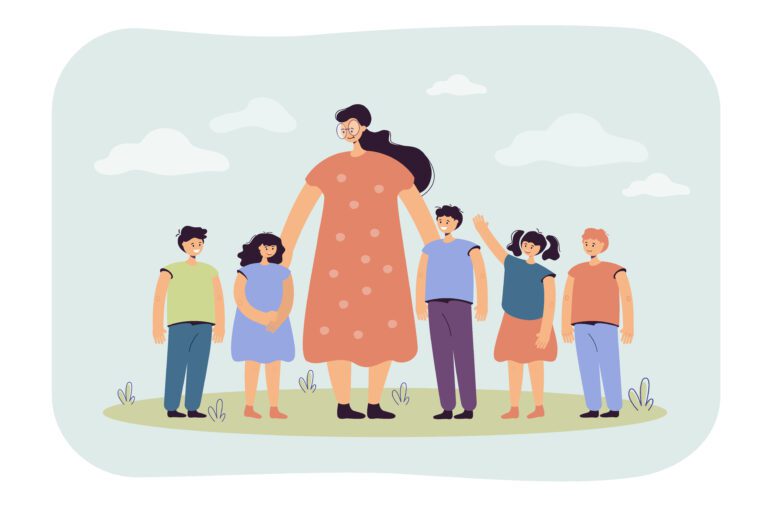The Role of Caregivers: Supporting Loved Ones with Disabilities
Discover the vital role caregivers play in supporting individuals with disabilities. From understanding their challenges to offering practical strategies, this article sheds light on the importance of self-care, communication, and advocacy. Reach out if you need support on this journey.

Caring for a loved one with a disability is a deeply rewarding yet challenging journey. Caregivers play a crucial role in providing physical, emotional, and practical support to their loved ones, often sacrificing their own needs and well-being in the process. In this article, we’ll explore the invaluable role of caregivers and offer insights into how they can effectively support individuals with disabilities.
Understanding the Caregiver’s Role
Caregivers of individuals with disabilities serve as pillars of strength and support. They assist with daily activities, such as personal care, mobility, and household tasks. Beyond the physical aspect, caregivers also offer emotional support, companionship, and advocacy for their loved ones. From navigating healthcare systems to advocating for accessibility and inclusion, caregivers wear many hats in their roles.
Challenges Faced by Caregivers
While caregiving can be deeply fulfilling, it also comes with its share of challenges. The physical demands of caregiving can be exhausting, leading to caregiver burnout and fatigue. Additionally, caregivers may experience emotional strain, financial stress, and social isolation. Balancing caregiving responsibilities with other aspects of life, such as work and personal relationships, can also be overwhelming.
Strategies for Effective Caregiving
Self-Care: Caregivers must prioritize their own well-being to effectively support their loved ones. This includes taking breaks, seeking support from friends and family, and engaging in activities that bring joy and relaxation.
Communication: Open and honest communication is essential in the caregiver-recipient relationship. Caregivers should actively listen to their loved ones’ needs, preferences, and concerns, and communicate their own boundaries and limitations.
Advocacy: Caregivers play a vital role in advocating for their loved ones’ rights and needs. Whether it’s accessing healthcare services, securing accommodations, or promoting inclusion in the community, caregivers can be powerful advocates for change.
Education: Continuously educating oneself about the specific disability and available resources is crucial for effective caregiving. This includes understanding medical conditions, learning about assistive technologies, and staying informed about relevant policies and legislation.
Seeking Support: Caregivers should not hesitate to seek support from professionals, support groups, or online communities. Connecting with others who are facing similar challenges can provide validation, empathy, and practical advice.
Respite Care: Taking regular breaks from caregiving responsibilities is essential for preventing burnout. Respite care services, which provide temporary relief for caregivers, allow them to recharge and attend to their own needs.
Celebrating Caregivers
Caregivers are unsung heroes whose contributions often go unnoticed. It’s important to recognize and celebrate their dedication, compassion, and resilience. Whether through words of appreciation, gestures of support, or acts of kindness, acknowledging caregivers can make a meaningful difference in their lives.
The role of caregivers in supporting loved ones with disabilities cannot be overstated. Their unwavering commitment, compassion, and advocacy are instrumental in enhancing the quality of life for individuals with disabilities. By prioritizing self-care, seeking support, and advocating for inclusion, caregivers can continue to make a profound difference in the lives of their loved ones and in society as a whole.
If you’re caring for someone dear to you or know someone who is, we’re here to lend a hand. Reach out to us, and let’s find ways to support you on this journey together. Contact us today on 1300 97 848.
Check more events and stories

Exploring Adaptive Sports and Recreation Opportunities in Australia
Discover empowering opportunities like wheelchair basketball, adaptive cycling, and more that promote inclusion and achievement

Self-Care Strategies for Individuals with Disabilities and Chronic Conditions
Discover practical self-care strategies tailored to the unique needs of individuals with disabilities and chronic conditions. From prioritizing rest and nutrition to cultivating emotional well-being and setting boundaries, empower yourself to enhance your overall quality of life and wellness journey.

How Aged Clients Can Benefit from In-Home Care
How Aged Clients Can Benefit from In-Home Care in Victoria More Australians are choosing to live at home to maintain their independence as they age.

How to Choose a Quality NDIS-Registered Support Provider
Choosing a NDIS-Registered Support Provider in Victoria Trying to find an NDIS provider that provides quality, short and long-term care? Quality support means understanding and

Embracing Inclusive Recreation: A Guide to Accessible Leisure Activities for People with Disabilities
Embracing Inclusive Recreation: A Guide to Accessible Leisure Activities for People with Disabilities

Educating Children About Disability: Fostering Empathy and Inclusion from a Young Age
Educating Children About Disability: Fostering Empathy and Inclusion from a Young Age

